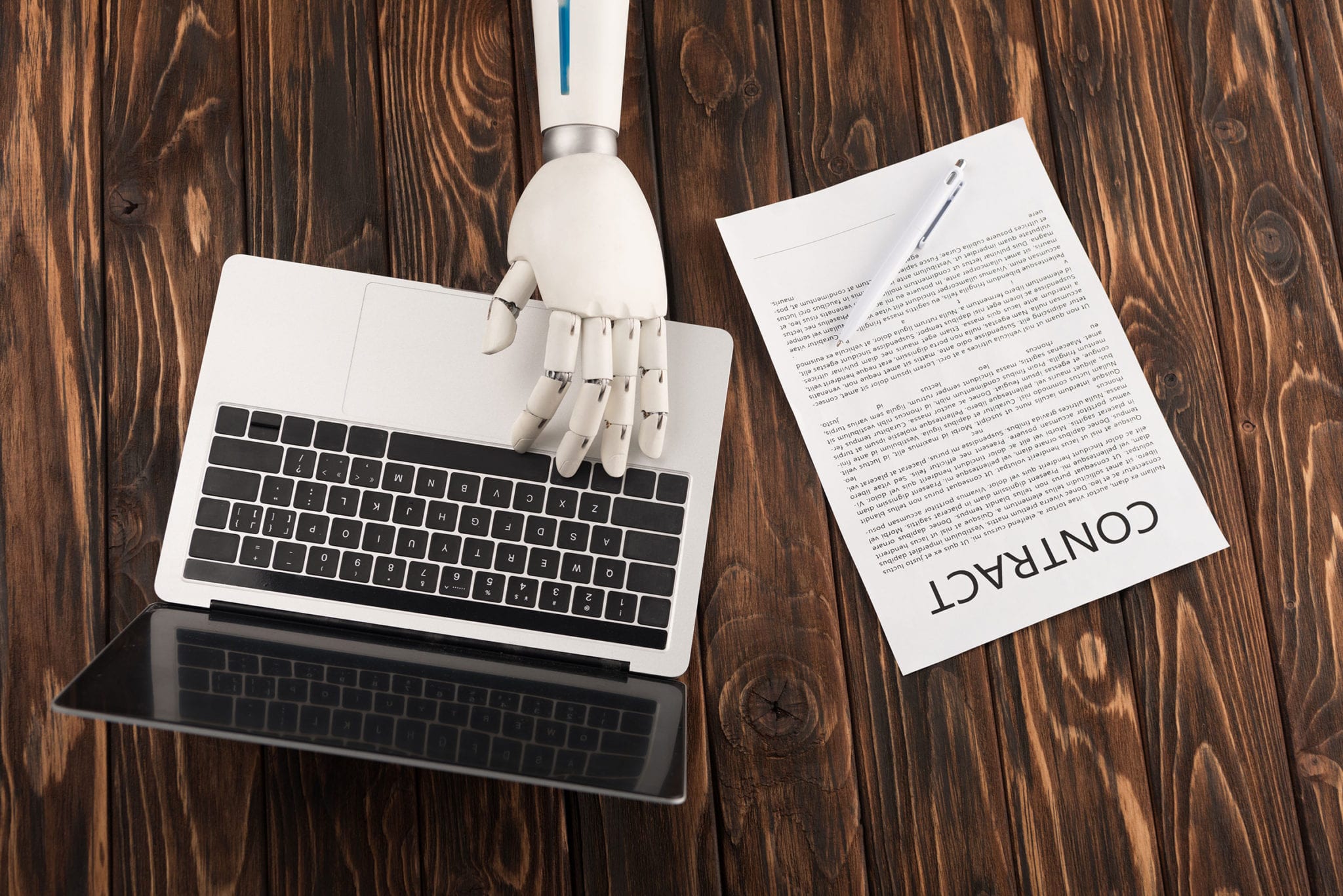Artificial Intelligence (AI), in simple terms, can be defined as the machines or tools with intelligent behavior. AI has changed many industries across the spectrum by optimizing high-level tasks and increasing business revenue. That is why every domain, whether, manufacturing, marketing, or any other, has a place for AI technology in their work processes. Even the legal sector is procuring much potential from this technology. Legal entities, those using AI, have seen significant improvements in their productivity and work efficiency.

Why AI has Become Essential for Legal Firms
The AI algorithms empower the machines to interpret data, identify patterns, and derive conclusions. For instance, Artificial Intelligence can assist attorneys as well as legal firms to perform tasks such as drafting the lower liability agreements automatically. That means human involvement in doing some essential or even complex job functions is reduced. It leads to deliver accurate, optimized, and less time-consuming outcomes.
How AI is Transforming the Legal Industry
Machine learning– an application of AI- has been already used for legal research and predicting litigation outcomes. AI helps perform tasks such as advising and negotiating with clients, appearing in a court hearing, and more.
Toward this, let us have a look at the top ways Artificial Intelligence is helping the legal sector.
- Due Diligence: Legal support professionals across law firms, spend a significant amount of time to conduct due diligence for their clients. They confirm facts & figures, thoroughly evaluate the decisions made on prior cases, and use that data to deliver efficient counseling to the clients. In such situations, tools powered by Artificial Intelligence can provide faster, accurate, and consistent results than human professionals.
- Review & Manage Contracts: Law firms regularly review and manage the contracts of their clients. They identify the issues and risks that could make negative impacts on client decisions. As part of this, they mark items in the contracts, modify them, and re-counsel the clients whether they should sign the contract or not. As a result, clients can get better terms to negotiate. An AI-based tool can review such clients’ contracts in bulk. Moreover, it can find mistakes faster with more accuracy that are often missed by human eyes. The software can even create alerts & notifications for contract-related dates.
- Document Management: Document management is the most crucial function of legal departments. However, many law firms today find it challenging to manage a massive amount of documents created and stored across multiple systems and hard drives. They face the pressure of implementing cost-effective solutions while maintaining the security of the growing number of records. State-Of-The-Art AI-based software for managing legal documents eliminates human inaccuracies and mitigate risks by reducing manual document extraction. It helps to store, manage, and retrieve documents faster, which increases efficiency and helps to engage legal support professionals in other more productive jobs.
- Prediction of Legal Outcomes: An AI-powered software can store legal data for years and can help lawyers to analyze the legal proceedings of previous cases that can relate to their current trials. Through that, they can identify the best possible factors to help them win the present law cases. Moreover, the AI technology can deliver useful insights of similar cases that can help to get client-related answers such as should the client settle for the terms or if the client goes for the trials, then how likely it will be that he wins.
- Automation of Timecard Narrative Classification: Legal firms have to keep the recordings for the time taken to accomplish various client projects. An AI-powered solution can understand all possible identifiers in the timecard narrative that reveal the identity of specific task codes for that description. It then inserts these identifiers in the relevant database records or data extracts provided by law firms. Further, such a solution helps the lawyers to analyze the previous cases and determine where their time and efforts were spent. This data helps the lawyers to do better planning for similar cases. As a result, they can maximize outcomes with reduced time and effort. Moreover, such an approach improves client satisfaction, which results in retaining and attracting clients.
- Handling Big Data: Big data, if managed correctly, can drive law firms to make better and faster decisions. However, many modern law practices still possess poorly organized, incomplete, or inaccurate data. That is why they cannot leverage big data with full potential. To address this, law organizations can use Artificial Intelligence technology to analyze their data in a better way. AI can help legal departments to organize the data with error-free and complete information. It then shorts this data according to defined objectives and turns it into actionable insights.
- Improving Security and User Management: Smart security software based on Artificial Intelligence can create digital fingerprints for the employees according to their behavior patterns. Such a process helps admin to identify which user is working on which matter, which document is modified, downloaded, or shared by a specific member, and much more. Besides, such AI-powered software can help to generate alerts when a particular user’s behavior changes, for instance, when his account has been compromised. As a result, it becomes possible to thwart phishing and other potential security attacks faster than traditional security practices.
Conclusion
AI-based tools are becoming more effective and useful to perform litigation tasks. Lawsuit professionals have been using this technology to review a broad set of documents and analyze memoranda to identify case-related issues. A few law firms have already adopted AI software to predict litigation outcomes. While many others have begun to use Artificial Intelligence-based processes to manage large sets of documents, review contracts, and automate many other legal activities.
Lawyers and law firms play a crucial role in the efficient functioning of the modern economy. That is why it has now become essential for all the law firms to embrace AI technology and tools and begin to build internal AI practices. This new system will help to create a perfect balance between the clients and lawyers. As part of this, an experienced software company can help law organizations to test pilot projects to understand the working and potential effects of Artificial Intelligence best practices.


